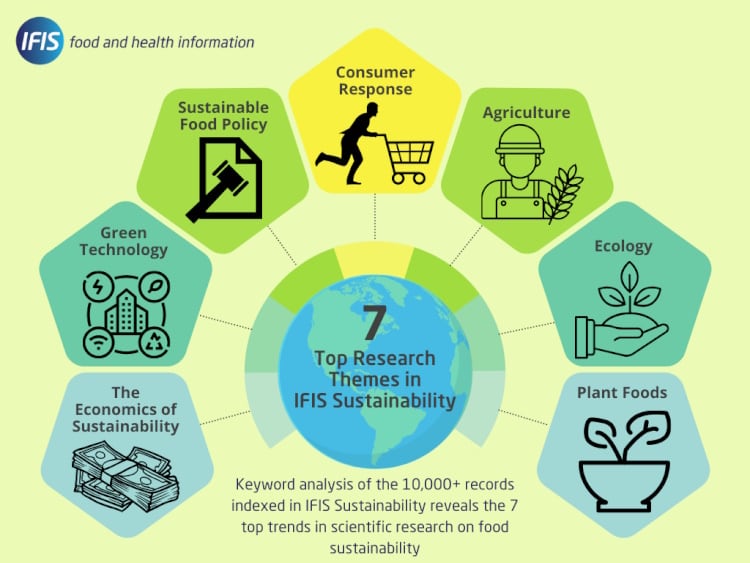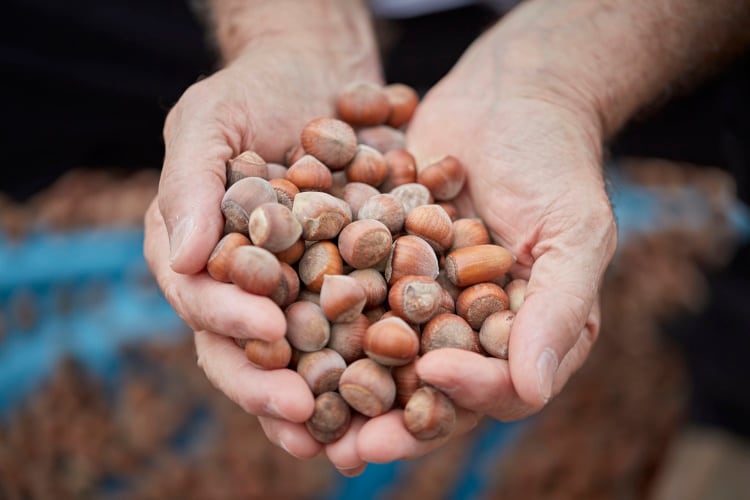The Food and Agriculture Organisation’s (FAO) World Food Day on 16 October 2023 centred on water’s importance in sustainable food systems.
Its theme - Water is life, water is food. Leave no one behind - resonates with IFIS Publishing’s commitment to providing a reliable and accessible resource for research and innovation in pursuing sustainable water use and food production.
IFIS launched its free Abstracting and Indexing (A&I) database, which curates the latest scientific research at the intersection of food and sustainability. Released to coincide with World Food Day, the database has over 10,000 vetted records and is updated weekly to provide the latest insights into scientific literature published over the past six months.
“The most pressing sustainability challenge for the F&B industry is for companies and organisations to establish - and continually update - the evidence base for the most sustainable ingredients, processes and products,” said Prof Colin Dennis, chairman of not-for-profit educational charity IFIS Publishing and the Leadership Development Committee at Institute of Food Technologists (IFT).

Ecology, ethics and new developments
Consumers are increasingly making choices based on sustainability and ethical considerations.
“While the pricing dynamic is complex, shoppers consistently prefer products that align with their values,” Katy Askew, MD of IFIS Publishing, told Bakery&Snacks.
This shift in consumer preferences drives food companies to adopt more sustainable practices to meet market demand. Issues like reducing waste, energy-efficient production and implementing circular economy solutions are highly relevant in this market. Food waste and sustainable packaging are matters that resonate particularly strongly with shoppers of bakery and snack products.
Consumer-centric approaches are a crucial part of developing sustainability in the food and beverage (F&B) sector, with brands encouraged to explore the influences on buyers’ behaviour that can support sustainable choices.
Ecological concerns, new agriculture developments include sustainable farming practices and food security, and the environmental benefits of plant-based diets and sustainable plant-based products are also critical.
“Issues like climate change, resource scarcity and pollution have spotlighted the need for sustainable practices in the food sector,” said Askew, adding consumers are demanding transparency around sourcing and producing ingredients, and calling for minimally processed ingredients and locality, perceiving them as more sustainable and healthier.
Health and nutrition are intricately linked with sustainability, as consumers look for foods that are good for them and have a minimal environmental impact.
Ethical trade practices are also paramount in shaping the industry’s sustainability agenda. Issues like fair labour practices, humane treatment of animals and equitable supply chains are at the forefront of discussions.

Economics, technology and policy
IFIS’ A&I database reflects the F&B industry’s importance in finding practical approaches that acknowledge the need for solutions in the food market’s broader context.
The push toward producing sustainable ingredients, processes and products is driven by many factors, reflecting the industry’s commitment to a more environmentally conscious, socially responsible and economically sustainable future. Key research themes revolve around economics, technology and policy-driven sustainability.
“It is important to stress that sustainability makes good economic sense when done well. In addition to the demand side pull, companies can achieve cost savings by reducing waste, optimising resource use and adopting more efficient practices,” said Askew.
Leveraging technology for more efficient and sustainable practices in food processing and packaging, for example, is vital, as is emphasising the importance of regulatory frameworks in achieving sustainability goals.
The regulatory landscape is evolving to incorporate sustainability considerations. Governments and international bodies are introducing measures to encourage more responsible production and consumption, including food safety, labelling, waste reduction and sustainable sourcing regulations.
“Food industry stakeholders must adapt to these changing legal requirements,” said Askew.
Affordability vs sustainability

“Balancing affordability and sustainability is a significant challenge in the bakery and snacks industry,” she added noting that in this highly competitive sector, companies must find ways to deliver products that meet sustainability expectations while remaining cost-effective.
“Therefore, innovation becomes mission-critical for sustainable products to gain mass-scale adoption.
Innovation can encompass technologies that reduce water use, minimise carbon emissions or address food waste issues.
Responsible ingredient sourcing is one approach to accessing scientific research on sustainable ingredients.
“By incorporating these components into their products, they can meet consumers’ demand for eco-friendly options without significantly raising costs,” said Askew.
Adopting sustainable practices can also be about delivering long-term savings via energy-efficient production methods.
By optimising their processes based on this research, companies can cut operational costs while lowering their footprint. Waste reduction strategies are also crucial, exploring preservation techniques, side-stream utilisation and reducing disposal costs.
Immediate steps for manufacturers

“Sustainability should be woven into the very fabric of an organisation’s culture, from research and development to day-to-day operations,” said Askew.
In fact, staying well-informed about the ever-evolving landscape of sustainability is pivotal for shaping effective and impactful sustainability strategies.
A critical area to focus on is developing and implementing highly efficient production methods underpinned by a robust evidence base. Efficiency is about reducing operational costs, minimising the environmental footprint and waste reduction.
Embracing sustainable packaging is also crucial, with manufacturers shifting towards eco-friendly packaging options that align with consumer preferences for environmentally responsible choices.
“Yet, it’s vital to maintain a steadfast focus on the core functions of packaging, which include food safety and preservation.
“However, the most paramount immediate change that bakery and snacks manufacturers can make is to ensure their sustainability efforts are deeply rooted in our collective knowledge,” she added.
It is also important for producers to actively engage with a broader community of industry stakeholders, researchers and organisations with a dedicated focus on sustainability.
“Collaboration is an essential linchpin in steering the transition towards a more sustainable food system,” urged Askew.
“Keeping pace with the ever-evolving sustainability landscape is pivotal for building a more resilient and responsible food industry.”




